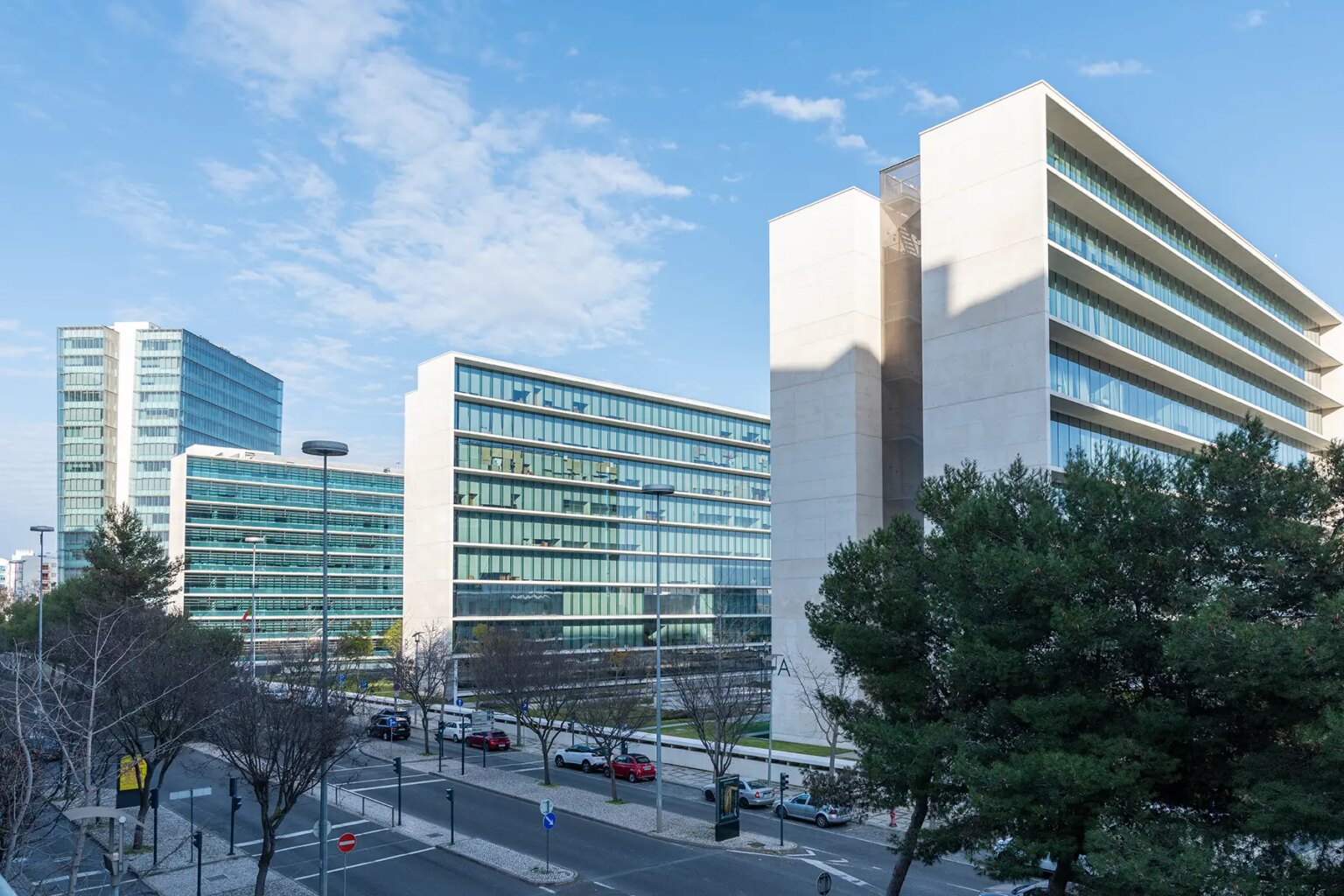Portugal’s salary regulations apply to all workers. There’s a minimum pay amount and employers must make sure they’re meeting this legal threshold. Employees who aren’t receiving the correct pay have the right to negotiate with their employer or take legal action. Find out about remuneration laws in Portugal, what you can expect to be paid for different jobs, and what to do if you disagree with your salary.
Keep reading for more information on the following topics:
Minimum wage in Portugal
As of 2025, the minimum wage in Portugal is €870 per month, ranking 11th in the European Union. Portugal’s minimum wage is higher than Cyprus’s and slightly lower than Lithuania’s.
Portuguese minimum salaries are based on 14 payments of €870 per year, excluding allowances and tips – workers in Portugal tend to receive a monthly wage plus two extra payments in summer and around Christmas. These are known as the 13th and 14th salary (décimo terceiro salário and décimo quarto salário).

The minimum wage for those receiving 12 payments is about €1,015. To calculate the minimum hourly wage, you can divide this amount by 160 hours per month, making approximately €6.34.
Is it possible to live on minimum wage in Portugal?
The cost of living in Portugal is relatively low compared to the rest of Europe. However, according to Numbeo, a single person’s average costs in Portugal are about €682 without rent. Considering that rent in Portugal averages €16.40/m2 per month (€20.10 in Lisbon, 2025 figures), it may be tricky to live on this wage without sharing accommodation.
Minimum wage in Portugal: exclusions and variations
Portuguese minimum wage differs from many other countries – it is the same for all ages. However, there are a few variations to consider:
- Self-employed people and freelancers – As self-employed workers’ income depends on the work they secure for themselves, there is no guarantee that they will receive an equivalent minimum wage. If you are freelancing and struggling, you may be able to receive a Social Integration Income (Rendimento Social de Inserção – RSI).
- Interns and trainees – In Portugal, some internships are subject to a minimum wage. Mandatory professional traineeships must pay an ‘internship allowance.’ Remuneration for other types of internships and training depends on the company, sector, and role.
- Workers in Madeira and the Azores – These regions have different minimum wages: Madeira’s is €915 per month, while the Azores’ is €913.50.
The minimum wage applies to a 40-hour working week, so part-time workers can expect to earn a proportion of this. Temporary workers and students working part-time in Portugal are entitled to the same wages as other employees.
What to do if you’re not being paid the minimum wage in Portugal
It is illegal for an employer to pay you less than the minimum wage for the hours you work. If this happens to you, there is a course of action. First, inform your employer of the discrepancy to make sure there hasn’t been an oversight and that you receive the correct income.
Should your employer refuse to rectify the situation, contact the Work Conditions Authority (Autoridade para as Condiciões do Trabalho – ACT). You can file an anonymous complaint for free in person or online. The ACT will then begin an investigation.
Average salary in Portugal
The average annual full-time salary in Portugal is €22,933 (2023), which is lower than the EU average of €37,863. According to Statistics Portugal (Instituto Nacional de Estatística – INE), this was a marked increase compared to 2022.
Highest-paying industries in Portugal
Like anywhere in the world, your job sector and level impact your earnings. According to INE, the three main sectors paid the following average monthly wages in 2022:
- Services: €1,407
- Industry, construction, energy, and water: €1,280
- Agriculture, forestry, and fishing: €1,056
What are the highest-paying jobs in Portugal?
When it comes to the roles themselves, salaries also vary widely. In general, roles that require more training or education offer higher wages. Below, you can find the average monthly salary for different roles in Portugal:
| Role | Salary |
| Representatives of the legislative and executive bodies, directors, officers, and executive managers | €2,885 |
| Specialists in intellectual and scientific activities | €2,095 |
| Intermediate level technicians and professions | €1,706 |
| Administrative staff | €1,216 |
| Plant and machine operators and assembly workers | €1,147 |
Average salary by region
Not only do salaries in Portugal depend on your level and industry, but average pay in different areas also varies. Below, you can find the average monthly earnings in 2022 across Portugal’s regions:
| Region | Salary |
| Grande Lisboa | €1,705 |
| Península de Setúbal | €1,361 |
| Norte | €1,253 |
| Região Autónoma da Madeira | €1,244 |
| Alentejo | €1,225 |
| Centro | €1,218 |
| Região Autónoma dos Açores | €1,191 |
| Oeste e Vale do Tejo | €1,166 |
| Algarve | €1,151 |
Portugal’s four largest cities generally have the highest average monthly earnings, which INE lists as:
- Lisbon: €1,856
- Porto: €1,629
- Coimbra: €1,331
- Braga: €1,286
When looking for work, it’s a good idea to check the average salary for your prospective role. This can help you to give an estimate of what you expect to earn during job interviews. Sites like Paylab and Glassdoor let users record their salaries, so you’ll have an idea of what your pay slip might look like.
Is there a gender pay gap in Portugal?
Portugal has a gender pay gap – on average, women are paid 8.6% less than men for the same work. Nevertheless, this is better than the EU average of 12.7%. According to the World Economic Forum’s Global Gender Gap Report 2024 (PDF), Portugal ranks 78th out of 146 countries for ‘wage equality for similar work.’
The country has introduced legislation to boost wage transparency and enforce pay equality. Each year, companies with over 50 employees must report pay data to the government, which reviews it for discrepancies between men and women. If it finds any disparities, the company must submit an evaluation plan to solve them.
International workers’ wages in Portugal
An International Labour Organization report reveals that Portugal has one of the highest migrant pay gaps, with foreign nationals earning 28.9% less than Portuguese citizens on average in 2020. This could be because fewer than 20% of foreign workers hold highly skilled jobs.
Non-citizens tend to work in construction, manufacturing, garment making, driving, assembly, and so-called non-skilled positions (PDF in Portuguese), according to a 2023 Migration Observatory report on integration.
The highest-earning immigrants come from the following countries:
- United States – €2,600 average monthly wage
- Belgium – €2,301
- Spain – €2,113

At the other end of the scale, workers from many countries earn, on average, less than the minimum wage. The lowest earners come from the following countries:
- Nepal – €703 average monthly wage
- Bangladesh – €711
- Thailand – €711
However, the report does not highlight why nationals of these countries earn less.
What if your salary is too low
If your salary is lower than expected for your sector or role, it’s worth first trying to negotiate with your employer. Several trade unions have collective agreements (Acordos Coletivos de Trabalho) that stipulate working conditions. They can assist their members with understanding their rights and handling negotiations.
On the other hand, if your employer is engaging in discriminatory practices, including those relating to pay, you can request legal assistance from the Commission for Equality in Labor and Employment (CITE – in Portuguese)
Useful Resources
- Commission for Equality in Labor and Employment (Comissão para a Igualdade no Trabalho e no Emprego) – contact details for legal assistance during labor disputes
- Numbeo – data on the cost of living in Portugal
- Statistics Portugal (Instituto Nacional de Estatística) – metrics on various topics in Portugal, including employment, demographics, and the economy
- Work Conditions Authority (Autoridade para as Condições do Trabalho) – information for employers and employees on Portuguese labor laws








